68 start with O start with O
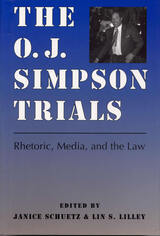
The O. J. Simpson case captured the attention of the public like no other event in media history, and the Simpson criminal trial is arguably the most notable example of the media's ability to transform litigation. This collection of original essays provides a critical analysis of the Simpson criminal and civil trials. Edited by communications professor Janice Schuetz and professional trial consultant Lin S. Lilley, the book focuses on telelitigation, the media's transformation of sensational trials, with celebrity defendants and victims, into telemediated forms.
The contributors—Ann Burnett, Patricia M. Ganer, Ann M. Gill, Diane Furno-Lamude, Lin S. Lilley, and Janice Schuetz—describe media spectacles, analyze the opening statements of trial attorneys in both cases, investigate the testimony of Mark Fuhrman in the criminal trial and O. J. Simpson in the civil trial, analyze the summations of trial attorneys in both cases, look at the processes of jury decision making, and identify the unique legal and social outcomes of the trials.
The discussions focus on five "hot button" legal issues sparked by the Simpson trials: the perceived unfairness of the jury system; unprecedented calls for jury reform in both civil and criminal arenas; the fairness issues of jury nullification, wherein a jury disregards the law in a criminal case in favor of leniency; wealth and the question of "buying" justice; and ethical questions about the ways the Simpson trials were conducted, in particular the ways in which Simpson attorney Johnnie Cochran and the "Dream Team" repeatedly nudged and occasionally crossed the ethical line.
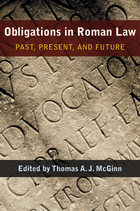
Long a major element of classical studies, the examination of the laws of the ancient Romans has gained momentum in recent years as interdisciplinary work in legal studies has spread. Two resulting issues have arisen, on one hand concerning Roman laws as intellectual achievements and historical artifacts, and on the other about how we should consequently conceptualize Roman law.
Drawn from a conference convened by the volume's editor at the American Academy in Rome addressing these concerns and others, this volume investigates in detail the Roman law of obligations—a subset of private law—together with its subordinate fields, contracts and delicts (torts). A centuries-old and highly influential discipline, Roman law has traditionally been studied in the context of law schools, rather than humanities faculties. This book opens a window on that world.
Roman law, despite intense interest in the United States and elsewhere in the English-speaking world, remains largely a continental European enterprise in terms of scholarly publications and access to such publications. This volume offers a collection of specialist essays by leading scholars Nikolaus Benke, Cosimo Cascione, Maria Floriana Cursi, Paul du Plessis, Roberto Fiori, Dennis Kehoe, Carla Masi Doria, Ernest Metzger, Federico Procchi, J. Michael Rainer, Salvo Randazzo, and Bernard Stolte, many of whom have not published before in English, as well as opening and concluding chapters by editor Thomas A. J. McGinn.
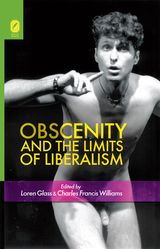
Over the course of the nineteenth century in both Europe and the United States, the state usurped the traditional authority of the church in regulating sexual expression and behavior. In the same century philosophers of classical liberalism identified that state function as a threat to individual liberty. Since then, liberalism has provided the framework for debates over obscenity around the globe.
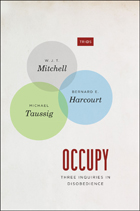


Selected Documents and Proceedings include:
Report of the International Ocean Institute 1999 - 2000
Oceans and the Law of the Sea Report of the Secretary General, 2000
UN Convention on the Law of the Sea Report
The Hamburg Declaration on the Ocean
The Fiji Declaration on Islands in the New Millennium
The Appendix includes a Directory of Oceans-related Institutions
Since its inception in 1978, the Ocean Yearbook has proven an invaluable research tool to marine biologists, oceanographers, ocean development specialists, students of international law, as well as analysts of foreign policy and international security.

Ocean Yearbook is a collaborative initiative of the International Ocean Institute and the Marine and Environmental Law Programme at Dalhousie University Law School.

The Ocean Yearbook is an invaluable research tool for marine biologists, oceanographers, students of international law, and analysts of foreign policy and international security.

We speak of rights as though they are objective matters of fact that have a crucial bearing on how we ought to behave. Yet few, if any, rights are universally acknowledged without wide differences of meaning. Instead, they usually represent the particular ideals of the individuals or groups that claim them. Theories of rights have always grappled with this central problem, but none of the literature on the subject has offered a satisfactory solution. Lloyd Weinreb makes the first significant advance toward an understanding of what rights are, how they function in our lives, and why we need them.
Weinreb’s central argument is that rights are tightly connected to responsibility. They are the normative constituents of persons, attributes that we have rightly, as our due. As such, they enable us to overcome the antinomy of moral freedom and natural causal order. Without them, we could not regard human beings as persons, that is, as free and responsible, or autonomous. Since responsibility is a structural feature of our experience and a matter of fact, rights too are matters of fact.
Against a review of the current debates on the subject, Weinreb fully elaborates his original argument on the nature of rights and finds the source of concrete rights in the nomos, or deep conventions, of a community. Applying his theory, he shows how it helps to answer specific questions about animal rights, human rights—including, in the context of abortion and capital punishment, the right to life—and civil rights, including particularly rights of the handicapped, gay rights, and affirmative action in contemporary American society. Along the way, Weinreb shows that Oedipus and Roger Clemens have more in common than either would probably have supposed.
This highly original work will significantly redirect the study of rights. It will be especially valuable to those who practice or study law, philosophy, politics, and public policy.

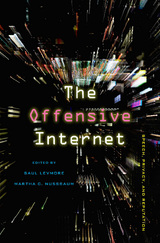
The Internet has been romanticized as a zone of freedom. The alluring combination of sophisticated technology with low barriers to entry and instantaneous outreach to millions of users has mesmerized libertarians and communitarians alike. Lawmakers have joined the celebration, passing the Communications Decency Act, which enables Internet Service Providers to allow unregulated discourse without danger of liability, all in the name of enhancing freedom of speech. But an unregulated Internet is a breeding ground for offensive conduct.
At last we have a book that begins to focus on abuses made possible by anonymity, freedom from liability, and lack of oversight. The distinguished scholars assembled in this volume, drawn from law and philosophy, connect the absence of legal oversight with harassment and discrimination. Questioning the simplistic notion that abusive speech and mobocracy are the inevitable outcomes of new technology, they argue that current misuse is the outgrowth of social, technological, and legal choices. Seeing this clearly will help us to be better informed about our options.
In a field still dominated by a frontier perspective, this book has the potential to be a real game changer. Armed with example after example of harassment in Internet chat rooms and forums, the authors detail some of the vile and hateful speech that the current combination of law and technology has bred. The facts are then treated to analysis and policy prescriptions. Read this book and you will never again see the Internet through rose-colored glasses.
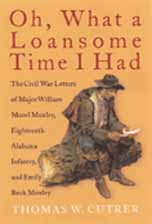
Most surviving correspondence of the Civil War period was written by members of a literate, elite class; few collections exist in which the woman's letters to her soldier husband have been preserved. Here, in the exchange between William and Emily Moxley, a working-class farm couple from Coffee County, Alabama, we see vividly an often-neglected aspect of the Civil War experience: the hardships of civilian life on the home front.
Emily's moving letters to her husband, startling in their immediacy and detail, chronicle such difficulties as a desperate lack of food and clothing for her family, the frustration of depending on others in the community, and her growing terror at facing childbirth without her husband, at the mercy of a doctor with questionable skills. Major Moxley's letters to his wife reveal a decidedly unromantic side of the war, describing his frequent encounters with starvation, disease, and bloody slaughter.
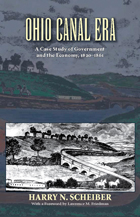
Ohio Canal Era, a rich analysis of state policies and their impact in directing economic change, is a classic on the subject of the pre–Civil War transportation revolution. This edition contains a new foreword by scholar Lawrence M. Friedman, Professor of Law, Stanford Law School, and a bibliographic note by the author.
Professor Scheiber explores how Ohio—as a “public enterprise state,” creating state agencies and mobilizing public resources for transport innovation and control—led in the process of economic change before the Civil War. No other historical account of the period provides so full and insightful a portrayal of “law in action.” Scheiber reveals the important roles of American nineteenth-century government in economic policy-making, finance, administration, and entrepreneurial activities in support of economic development.
His study is equally important as an economic history. Scheiber provides a full account of waves of technological innovation and of the transformation of Ohio’s commerce, agriculture, and industrialization in an era of hectic economic change. And he tells the intriguing story of how the earliest railroads of the Old Northwest were built and financed, finally confronting the state-owned canal system with a devastating competitive challenge.
Amid the current debate surrounding “privatization,” “deregulation,” and the appropriate use of “industrial policy” by government to shape and channel the economy. Scheiber’s landmark study gives vital historical context to issues of privatization and deregulation that we confront in new forms today.

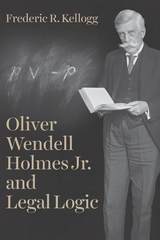
Conventional legal logic tends to focus on the role of judges in deciding cases. Holmes recognized input from outside the law—the importance of the social dimension of legal and logical induction: how opposing views of “many minds” may converge. Drawing on analogies from the natural sciences, Holmes came to understand law as an extended process of inquiry into recurring problems.
Rather than vagueness or contradiction in the meaning or application of rules, Holmes focused on the relation of novel or unanticipated facts to an underlying and emergent social problem. Where the meaning and extension of legal terms are disputed by opposing views and practices, it is not strictly a legal uncertainty, and it is a mistake to expect that judges alone can immediately resolve the larger issue.
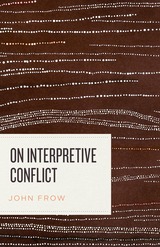
On Interpretive Conflict delves into four case studies where sharply different sets of values come into play—gun control, anti-Semitism, the religious force of images, and climate change. In each case, Frow lays out the way these controversies unfold within interpretive regimes that establish what counts as an interpretable object and the protocols of evidence and proof that should govern it. Whether applied to a Shakespeare play or a Supreme Court case, interpretation, he argues, is at once rule-governed and inherently conflictual. Ambitious and provocative, On Interpretive Conflict will attract readers from across the humanities and beyond.
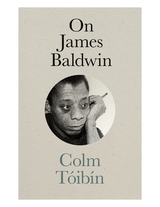
Acclaimed Irish novelist Colm Tóibín first read James Baldwin just after turning eighteen. He had completed his first year at an Irish university and was struggling to free himself from a religious upbringing. He had even considered entering a seminary and was searching for literature that would offer illumination and insight. Inspired by the novel Go Tell It on the Mountain, Tóibín found a writer who would be a lifelong companion and exemplar.
Tóibín appreciates Baldwin, writer to writer:
Baldwin was interested in the hidden and dramatic areas in his own being, and was prepared as a writer to explore difficult truths about his own private life. In his fiction, he had to battle for the right of his protagonists to choose or influence their destinies. He knew about guilt and rage and bitter privacies in a way that few of his White novelist contemporaries did. And this was not simply because he was Black and homosexual; the difference arose from the very nature of his talent, from the texture of his sensibility. “All art,” he wrote, “is a kind of confession, more or less oblique. All artists, if they are to survive, are forced, at last, to tell the whole story, to vomit the anguish up.”
On James Baldwin is a magnificent contemporary author’s tribute to one of his most consequential literary progenitors.

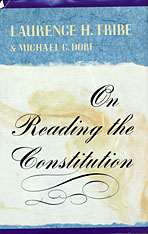
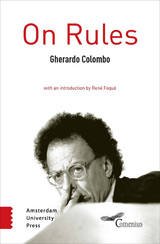
On Rules is the culmination of decades of thinking about and working within the law as both an ideal and a realm of practical action. Gherardo Colombo brings to his rich philosophical analysis of the culture of justice thirty years of experience in the Italian judiciary, which saw him head up numerous important and sensitive commissions and inquiries. His exploration of the concept and application of rules of justice is powerful and clear: if we don’t root our experience in a fundamental respect for rules, we cannot have a functioning, just society.

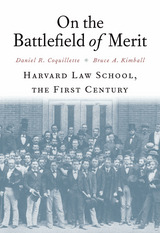
Harvard Law School is the oldest and, arguably, the most influential law school in the nation. U.S. presidents, Supreme Court justices, and foreign heads of state, along with senators, congressional representatives, social critics, civil rights activists, university presidents, state and federal judges, military generals, novelists, spies, Olympians, film and TV producers, CEOs, and one First Lady have graduated from the school since its founding in 1817.
During its first century, Harvard Law School pioneered revolutionary educational ideas, including professional legal education within a university, Socratic questioning and case analysis, and the admission and training of students based on academic merit. But the school struggled to navigate its way through the many political, social, economic, and legal crises of the century, and it earned both scars and plaudits as a result. On the Battlefield of Merit offers a candid, critical, definitive account of a unique legal institution during its first century of influence.
Daniel R. Coquillette and Bruce A. Kimball examine the school’s ties with institutional slavery, its buffeting between Federalists and Republicans, its deep involvement in the Civil War, its reluctance to admit minorities and women, its anti-Catholicism, and its financial missteps at the turn of the twentieth century. On the Battlefield of Merit brings the story of Harvard Law School up to 1909—a time when hard-earned accomplishment led to self-satisfaction and vulnerabilities that would ultimately challenge its position as the leading law school in the nation. A second volume will continue this history through the twentieth century.

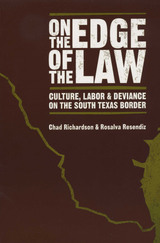
The Valley of South Texas is a region of puzzling contradictions. Despite a booming economy fueled by free trade and rapid population growth, the Valley typically experiences high unemployment and low per capita income. The region has the highest rate of drug seizures in the United States, yet its violent crime rate is well below national and state averages. The Valley's colonias are home to the poorest residents in the nation, but their rates of home ownership and intact two-parent families are among the highest in the country for low-income residential areas. What explains these apparently irreconcilable facts?
Since 1982, faculty and students associated with the Borderlife Research Project at the University of Texas-Pan American have interviewed thousands of Valley residents to investigate and describe the cultural and social life along the South Texas-Northern Mexico border. In this book, Borderlife researchers clarify why Valley culture presents so many apparent contradictions as they delve into issues that are "on the edge of the law"—traditional health care and other cultural beliefs and practices, displaced and undocumented workers, immigration enforcement, drug smuggling, property crime, criminal justice, and school dropout rates. The researchers' findings make it plain that while these issues present major challenges for the governments of the United States and Mexico, their effects and contradictions are especially acute on the border, where residents must daily negotiate between two very different economies; health care, school, and criminal justice systems; and worldviews.

Foreign Policy. “In the annals of forgetfulness there is nothing quite to compare with the fading from the American mind of the idea of the law of nations.”
Grenada. “We might have benefited from a weekend’s pause in which we could have considered our interests rather than merely giving in to our impulses.”
The mining of Nicaraguan harbors. “A practice of deception mutated into a policy of deceit.”
Iran–Contra. “The idea of international law had faded. But just as important, in the 1980s it had come to be associated with weaknesses in foreign policy. Real men did not cite Grotius.”
As the era of totalitarianism recedes, the time is at hand to ask by what rules we expect to conduct ourselves, Senator Daniel Patrick Moynihan writes in this pellucid, and often ironic, examination of international law. Our founding fathers had a firm grasp on the importance and centrality of such law; later presidents affirmed it and tried to establish international institutions based on such high principles; but we lost our way in the fog of the Cold War.
Moynihan’s exploration of American attitudes toward international law—those of presidents, senators, congressmen, public officials, and the public at large—reveals the abiding reverence for a law of nations and the attempts for almost two hundred years to make international law the centerpiece of foreign and strategic policy. Only in the last decade did a shift in values at the highest levels of government change the goals and conduct of the United States.
Displaying a firm grasp of history, informed by senatorial insights and investigative data, elegantly written, this book is a triumph of scholarship, interpretation, and insight.

This publication, issued in cooperation with the Selden Society, reproduces completely the Yale edition of 1915–1942, which has long been unobtainable. To it has been added an English translation, the first in almost a century, incorporating many improvements of the text, drawn from a re-examination of the manuscripts and a further identification of Henry de Bracton’s sources, Roman and English.
Volume I contains George E. Woodbine’s prolegomena to his edition, written in 1915, to which Samuel Thorne has added a prefatory note, reclassifying and redating the manuscripts on which the edition was based. Volume II begins the text and translation, which will be completed in Volume III and Volume IV. Notes and indices will appear in Volume V.

This publication, issued in cooperation with the Selden Society, reproduces completely the Yale edition of 1915–1942, which has long been unobtainable. To it has been added an English translation, the first in almost a century, incorporating many improvements of the text, drawn from a re-examination of the manuscripts and a further identification of Henry de Bracton’s sources, Roman and English.
Volume I contains George E. Woodbine’s prolegomena to his edition, written in 1915, to which Samuel Thorne has added a prefatory note, reclassifying and redating the manuscripts on which the edition was based. Volume II begins the text and translation, which will be completed in Volume III and Volume IV. Notes and indices will appear in Volume V.

This publication, issued in cooperation with the Selden Society, reproduces completely the Yale edition of 1915–1942, which has long been unobtainable. To it has been added an English translation, the first in almost a century, incorporating many improvements of the text, drawn from a re-examination of the manuscripts and a further identification of Henry de Bracton’s sources, Roman and English.
Volume I contains George E. Woodbine’s prolegomena to his edition, written in 1915, to which Samuel Thorne has added a prefatory note, reclassifying and redating the manuscripts on which the edition was based. Volume II begins the text and translation, which will be completed in Volume III and Volume IV. Notes and indices will appear in Volume V.

This publication, issued in cooperation with the Selden Society, reproduces completely the Yale edition of 1915–1942, which has long been unobtainable. To it has been added an English translation, the first in almost a century, incorporating many improvements of the text, drawn from a re-examination of the manuscripts and a further identification of Henry de Bracton’s sources, Roman and English.
Volume I contains George E. Woodbine’s prolegomena to his edition, written in 1915, to which Samuel Thorne has added a prefatory note, reclassifying and redating the manuscripts on which the edition was based. Volume II begins the text and translation, which will be completed in Volume III and Volume IV. Notes and indices will appear in Volume V.
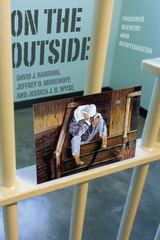
America’s high incarceration rates are a well-known facet of contemporary political conversations. Mentioned far less often is what happens to the nearly 700,000 former prisoners who rejoin society each year. On the Outside examines the lives of twenty-two people—varied in race and gender but united by their time in the criminal justice system—as they pass out of the prison gates and back into the world. The book takes a clear-eyed look at the challenges faced by formerly incarcerated citizens as they try to find work, housing, and stable communities. Standing alongside these individual portraits is a quantitative study conducted by the authors that followed every state prisoner in Michigan who was released on parole in 2003 (roughly 11,000 individuals) for the next seven years, providing a comprehensive view of their postprison neighborhoods, families, employment, and contact with the parole system. On the Outside delivers a powerful combination of hard data and personal narrative that shows why our country continues to struggle with the social and economic reintegration of the formerly incarcerated.
For further information, including an instructor guide and slide deck, please visit: http://ontheoutsidebook.us/home/instructors

The statesman on statecraft.
Cicero (Marcus Tullius, 106–43 BC), Roman lawyer, orator, politician, and philosopher, of whom we know more than of any other Roman, lived through the stirring era that saw the rise, dictatorship, and death of Julius Caesar in a tottering republic. In his political speeches especially and in his correspondence we see the excitement, tension, and intrigue of politics and the part he played in the turmoil of the time. Of about 106 speeches, delivered before the Roman people or the Senate if they were political, before jurors if judicial, fifty-eight survive (a few of them incompletely). In the fourteenth century Petrarch and other Italian humanists discovered manuscripts containing more than 900 letters of which more than 800 were written by Cicero and nearly 100 by others to him. These afford a revelation of the man all the more striking because most were not written for publication. Six rhetorical works survive and another in fragments. Philosophical works include seven extant major compositions and a number of others; and some lost. There is also poetry, some original, some as translations from the Greek.
The Loeb Classical Library edition of Cicero is in twenty-nine volumes.

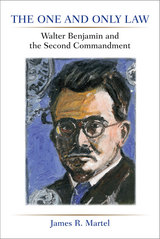
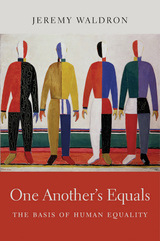
An enduring theme of Western philosophy is that we are all one another’s equals. Yet the principle of basic equality is woefully under-explored in modern moral and political philosophy. In a major new work, Jeremy Waldron attempts to remedy that shortfall with a subtle and multifaceted account of the basis for the West’s commitment to human equality.
What does it mean to say we are all one another’s equals? Is this supposed to distinguish humans from other animals? What is human equality based on? Is it a religious idea, or a matter of human rights? Is there some essential feature that all human beings have in common? Waldron argues that there is no single characteristic that serves as the basis of equality. He says the case for moral equality rests on four capacities that all humans have the potential to possess in some degree: reason, autonomy, moral agency, and the ability to love. But how should we regard the differences that people display on these various dimensions? And what are we to say about those who suffer from profound disability—people whose claim to humanity seems to outstrip any particular capacities they have along these lines?
Waldron, who has worked on the nature of equality for many years, confronts these questions and others fully and unflinchingly. Based on the Gifford Lectures that he delivered at the University of Edinburgh in 2015, One Another’s Equals takes Waldron’s thinking further and deeper than ever before.

Abortion, affirmative action, the "right to die," pornography and free speech, homosexuality and sex discrimination: as eagerly as the Supreme Court's rulings on these hot issues are awaited and as intently as they're studied, they never seem to settle anything once and for all. But something is settled in the process--in the incremental approach--as Cass Sunstein shows us in this instructive book.
One of America's preeminent constitutional scholars, Sunstein mounts a defense of the most striking characteristic of modern constitutional law: the inclination to decide one case at a time. Examining various controversies, he shows how--and why--the Court has avoided broad rulings on issues from the legitimacy of affirmative action to the "right to die," and in doing so has fostered rather than foreclosed public debate on these difficult topics. He offers an original perspective on the right of free speech and the many novel questions raised by Congress's efforts to regulate violent and sexual materials on new media such as the Internet and cable television. And on the relationship between the Constitution and homosexuality and sex discrimination, he reveals how the Court has tried to ensure against second-class citizenship--and the public expression of contempt for anyone--while leaving a degree of flexibility to the political process.
One Case at a Time also lays out, and celebrates, the remarkable constellation of rights--involving both liberty and equality--that now commands a consensus in American law. An authoritative guide to the Supreme Court, the book offers a new understanding of the American Constitution, and of the relationship between democracy and constitutionalism, and between rights and self-government.
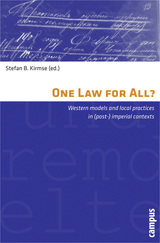
Examining new archival material from the nineteenth and early twentieth centuries, One Law for All? discusses legal transfer and practice in imperial and post-imperial societies, including Russia, Latin America, Africa, and East Asia. The essays collected here analyze the legal sphere as a site of struggle, both in debate and in everyday life, from the level of universal aspirations to particular local practices. The contributors explore the ways in which both lawmakers and ordinary people talk about and actively use the law, thereby telling a story of contested European hegemony, local assertions, and multiple legal borrowings.
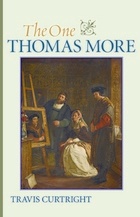

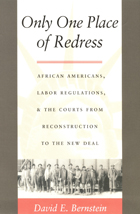
A pioneer in applying the insights of public choice theory to legal history, Bernstein contends that the much-maligned jurisprudence of the Lochner era—with its emphasis on freedom of contract and private market ordering—actually discouraged discrimination and assisted groups with little political clout. To support this thesis he examines the motivation behind and practical impact of laws restricting interstate labor recruitment, occupational licensing laws, railroad labor laws, minimum wage statutes, the Davis-Bacon Act, and New Deal collective bargaining. He concludes that the ultimate failure of Lochnerism—and the triumph of the regulatory state—not only strengthened racially exclusive labor unions but contributed to a massive loss of employment opportunities for African Americans, the effects of which continue to this day.
Scholars and students interested in race relations, labor law, and legal
or constitutional history will be fascinated by Bernstein’s daring—and controversial—argument.

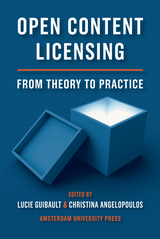
Although open content licenses only account for a fraction of all copyright licenses currently enforced in the world, their introduction has had profound effects on the use and dissemination of information. This book explores the theoretical underpinnings of these licenses and offers insight on the practical advantages and inconveniences of their use. The essays collected here include an objective study of the principles of open content from the perspective of European intellectual property law as well as novel examinations of their possible implementation in different areas of the cultural or information industry.
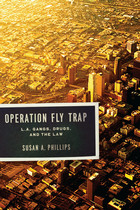
In 2003, an FBI-led task force known as Operation Fly Trap attempted to dismantle a significant drug network in two Bloods-controlled, African American neighborhoods in Los Angeles. The operation would soon be considered an enormous success, noted for the precision with which the task force targeted and removed gang members otherwise entrenched in larger communities. In Operation Fly Trap, Susan A. Phillips questions both the success of this operation and the methods used to conduct it. Based on in-depth ethnographic research with Fly Trap participants, Phillips’s work brings together police narratives, crime statistics, gang cultural histories, and extensive public policy analysis to examine the relationship between state persecution and the genesis of violent social systems.
Crucial to Phillips’s contribution is the presentation of the voices and perspectives of both the people living in impoverished communities and the agents that police them. Phillips positions law enforcement surveillance and suppression as a critical point of contact between citizen and state. She tracks the bureaucratic workings of police and FBI agencies and the language, ideologies, and methods that prevail within them, and shows how gangs have adapted, seeking out new locations, learning to operate without hierarchies, and moving their activities more deeply underground. Additionally, she shows how the targeted efforts of task forces such as Fly Trap wreak sweeping, sustained damage on family members and the community at large. Balancing her roles as even-handed reporter and public scholar, Phillips presents multiple flaws within the US criminal justice system and builds a powerful argument that many law enforcement policies in fact nurture, rather than prevent, violence in American society.
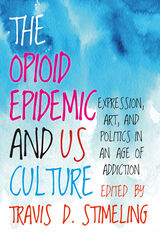
Written for an audience of people working on the front lines of the opioid crisis, the book is essential reading for social workers, addiction counselors, halfway house managers, and people with opioid use disorder. It will also appeal to the community of scholars interested in understanding how aesthetics shape our engagement with critical social issues, particularly in the fields of literary and film criticism, museum studies, and ethnomusicology.
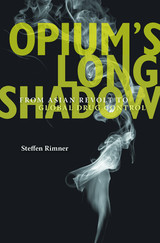
The League of Nations Advisory Committee on the Traffic in Opium and Other Dangerous Drugs, created in 1920, culminated almost eight decades of political turmoil over opium trafficking, which was by far the largest state-backed drug trade in the age of empire. Opponents of opium had long struggled to rein in the profitable drug. Opium’s Long Shadow shows how diverse local protests crossed imperial, national, and colonial boundaries to gain traction globally and harness public opinion as a moral deterrent in international politics after World War I.
Steffen Rimner traces the far-flung itineraries and trenchant arguments of reformers—significantly, feminists and journalists—who viewed opium addiction as a root cause of poverty, famine, “white slavery,” and moral degradation. These activists targeted the international reputation of drug-trading governments, first and foremost Great Britain, British India, and Japan, becoming pioneers of the global political tactic we today call naming and shaming. But rather than taking sole responsibility for their own behavior, states in turn appropriated anti-drug criticism to shame fellow sovereigns around the globe. Consequently, participation in drug control became a prerequisite for membership in the twentieth-century international community. Rimner relates how an aggressive embrace of anti-drug politics earned China and other Asian states new influence on the world stage.
The link between drug control and international legitimacy has endured. Amid fierce contemporary debate over the wisdom of narcotics policies, the 100-year-old moral consensus Rimner describes remains a backbone of the international order.
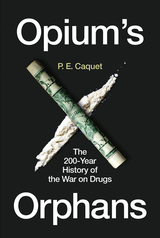
Opium’s Orphans is the first full history of drug prohibition and the “war on drugs.” A no-holds-barred but balanced account, it shows that drug suppression was born of historical accident, not rational design. The war on drugs did not originate in Europe or the United States, and even less with President Nixon, but in China. Two Opium Wars followed by Western attempts to atone for them gave birth to an anti-narcotics order that has come to span the globe. But has the war on drugs succeeded? As opioid deaths and cartel violence run rampant, contestation becomes more vocal, and marijuana is slated for legalization, Opium's Orphans proposes that it is time to go back to the drawing board.
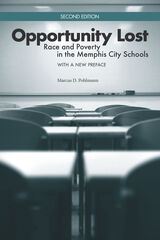
In Opportunity Lost, Marcus D. Pohlmann examines the troubling issue of why Memphis city school students are underperforming at alarming rates. His provocative interdisciplinary analysis, combining both history and social science, examines the events before and after desegregation, compares a city school to an affluent suburban school to pinpoint imbalances, and offers critical assessments of various educational reforms.
In addition to his analysis of the problems, Pohlmann lays out educational reforms that run the gamut from early intervention and parental involvement to increasing teacher compensation, improving time utilization, and more. Pohlmann’s illuminating and original study has wide application for a problem that bedevils inner-city children everywhere and prevents the promise of equality from reaching all of our nation’s citizens.
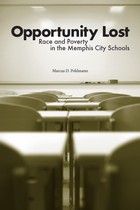
In Opportunity Lost, Marcus D. Pohlmann examines the troubling issue of why Memphis city school students are underperforming at alarming rates. His provocative interdisciplinary analysis, combining both history and social science, examines the events before and after desegregation, compares a city school to an affluent suburban school to pinpoint imbalances, and offers critical assessments of various educational reforms.
Employing a rich trove of data to demonstrate the realities of racial and economic inequality, Pohlmann underscores the difficulties that plague the urban schools and their students-problems that persist despite the fact that the city schools often have more resource advantages than the county schools: better student-to-teacher ratios, more teachers with advanced degrees, and even greater spending on each student. Pohlmann demonstrates that post-industrial economic shifts and continuing racial exclusion have resulted in a predominance of low-income students at these schools. This economic disadvantage has had a lasting impact on performance among students at all grade levels and has not been reversed simply by increasing resources.
In addition to his analysis of the problems, Pohlmann lays out educational reforms that run the gamut from early intervention and parental involvement to increasing class size and teacher compensation, improving time utilization, and more. Pohlmann's illuminating and original study has wide application for a problem that bedevils inner-city children everywhere and prevents the promise of equality from reaching all of our nation's citizens.
Marcus D. Pohlmann is professor of political science at Rhodes College. He is the author of Governing the Postindustrial City; coauthor, with Michael P. Kirby, of Racial Politics at the Crossroads: Memphis Elects W. W. Herenton; and editor of the six-volume African American Political Thought.
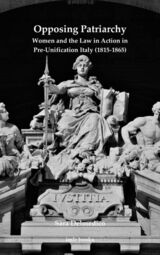
In Italy and beyond, the nineteenth century was a time of great political change. Shifts in state boundaries and socio-economic structures deeply affected the Italian political landscape, including the nation’s legal system. Many Italian women, who had lived within a strict patriarchal and hierarchical society, began to redefine their identities beyond the traditional domestic roles of daughter, wife, and mother. This volume charts that process by focusing on women’s attitudes towards the law and their interaction with the legal system. Sara Delmedico seeks to recover the forgotten voices and lives of those ordinary women who, in their everyday lives, reacted against the limitations and constraints imposed upon them by society and who refused to accept their status passively. As this volume shows, the women of the period understood the law, questioned obedience, challenged authority, and stood up for themselves. Even though they did not always achieve their goals, their actions contributed to shaping our present.
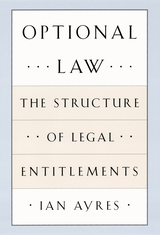
Ayres identifies flaws in the current system and shows how option theory can radically expand and improve the ways that lawmakers structure legal entitlements. An option-based system, Ayres shows, gives parties the option to purchase—or the option to sell—the relevant legal entitlement. Choosing to exercise a legal option forces decisionmakers to reveal information about their own valuation of the entitlement. And, as with auctions, entitlements in option-based law naturally flow to those who value them the most. Seeing legal entitlements through this lens suggests a variety of new entitlement structures from which lawmakers might choose. Optional Law provides a theory for determining which structure is likely to be most effective in harnessing parties' private information.
Proposing a practical approach to the foundational question of how to allocate and protect legal rights, Optional Law will be applauded by legal scholars and professionals who continue to seek new and better ways of fostering both equitable and efficient legal rules.
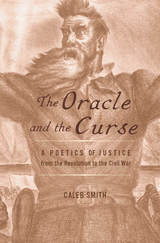
Condemned to hang after his raid on Harper’s Ferry, John Brown prophesied that the crimes of a slave-holding land would be purged away only with blood. A study of omens, maledictions, and inspired invocations, The Oracle and the Curse examines how utterances such as Brown’s shaped American literature between the Revolution and the Civil War.
In nineteenth-century criminal trials, judges played the role of law’s living oracles, but offenders were also given an opportunity to address the public. When the accused began to turn the tables on their judges, they did so not through rational arguments but by calling down a divine retribution. Widely circulated in newspapers and pamphlets, these curses appeared to channel an otherworldly power, condemning an unjust legal system and summoning readers to the side of righteousness.
Exploring the modes of address that communicated the authority of law and the dictates of conscience in antebellum America’s court of public opinion, Caleb Smith offers a new poetics of justice which assesses the nonrational influence that these printed confessions, trial reports, and martyr narratives exerted on their first audiences. Smith shows how writers portrayed struggles for justice as clashes between human law and higher authority, giving voice to a moral protest that transformed American literature.
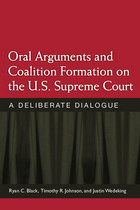
The U.S. Supreme Court, with its controlled, highly institutionalized decision-making practices, provides an ideal environment for studying coalition formation. The process begins during the oral argument stage, which provides the justices with their first opportunity to hear one another's attitudes and concerns specific to a case. This information gathering allows them eventually to form a coalition.
In order to uncover the workings of this process, the authors analyze oral argument transcripts from every case decided from 1998 through 2007 as well as the complete collection of notes kept during oral arguments by Justice Lewis F. Powell and Justice Harry A. Blackmun. Both justices clearly monitored their fellow justices' participation in the discussion and used their observations to craft opinions their colleagues would be likely to support. This study represents a major step forward in the understanding of coalition formation, which is a crucial aspect of many areas of political debate and decision making.
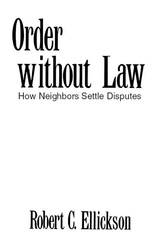
In Order without Law, Robert Ellickson shows that law is far less important than is generally thought. He demonstrates that people largely govern themselves by means of informal rules—social norms—that develop without the aid of a state or other central coordinator. Integrating the latest scholarship in law, economics, sociology, game theory, and anthropology, Ellickson investigates the uncharted world within which order is successfully achieved without law.
The springboard for Ellickson’s theory of norms is his close investigation of a variety of disputes arising from the damage created by escaped cattle in Shasta County, California. In “The Problem of Social Cost”—the most frequently cited article on law—economist Ronald H. Coase depicts farmers and ranchers as bargaining in the shadow of the law while resolving cattle-trespass disputes. Ellickson’s field study of this problem refutes many of the behavioral assumptions that underlie Coase’s vision, and will add realism to future efforts to apply economic analysis to law.
Drawing examples from a wide variety of social contexts, including whaling grounds, photocopying centers, and landlord–tenant relations, Ellickson explores the interaction between informal and legal rules and the usual domains in which these competing systems are employed. Order without Law firmly grounds its analysis in real-world events, while building a broad theory of how people cooperate to mutual advantage.
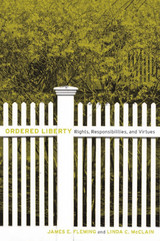
Many have argued in recent years that the U.S. constitutional system exalts individual rights over responsibilities, virtues, and the common good. Answering the charges against liberal theories of rights, James Fleming and Linda McClain develop and defend a civic liberalism that takes responsibilities and virtues—as well as rights—seriously. They provide an account of ordered liberty that protects basic liberties stringently, but not absolutely, and permits government to encourage responsibility and inculcate civic virtues without sacrificing personal autonomy to collective determination.
The battle over same-sex marriage is one of many current controversies the authors use to defend their understanding of the relationship among rights, responsibilities, and virtues. Against accusations that same-sex marriage severs the rights of marriage from responsible sexuality, procreation, and parenthood, they argue that same-sex couples seek the same rights, responsibilities, and goods of civil marriage that opposite-sex couples pursue. Securing their right to marry respects individual autonomy while also promoting moral goods and virtues. Other issues to which they apply their idea of civic liberalism include reproductive freedom, the proper roles and regulation of civil society and the family, the education of children, and clashes between First Amendment freedoms (of association and religion) and antidiscrimination law. Articulating common ground between liberalism and its critics, Fleming and McClain develop an account of responsibilities and virtues that appreciates the value of diversity in our morally pluralistic constitutional democracy.
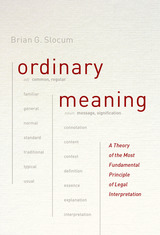
Legal interpretation is built around one key question: by what standard should legal texts be interpreted? The traditional doctrine is that words should be given their “ordinary meaning”: words in legal texts should be interpreted in light of accepted standards of communication. Yet often, courts fail to properly consider context, refer to unsuitable dictionary definitions, or otherwise misconceive how the ordinary meaning of words should be determined. In this book, Brian Slocum builds his argument for a new method of interpretation by asking glaring, yet largely ignored, questions. What makes one particular meaning the “ordinary” one, and how exactly do courts conceptualize the elements of ordinary meaning? Ordinary Meaning provides a much-needed, revised framework, boldly instructing those involved with the law in how the components of ordinary meaning should properly be identified and developed in our modern legal system.

A Federalist Notable Book
“An important contribution to our understanding of the 14th Amendment.”
—Wall Street Journal
“By any standard an important contribution…A must-read.”
—National Review
“The most detailed legal history to date of the constitutional amendment that changed American law more than any before or since…The corpus of legal scholarship is richer for it.”
—Washington Examiner
Adopted in 1868, the Fourteenth Amendment profoundly changed the Constitution, giving the federal judiciary and Congress new powers to protect the fundamental rights of individuals from being violated by the states. Yet, the Supreme Court has long misunderstood or ignored the original meaning of its key Section I clauses.
Barnett and Bernick contend that the Fourteenth Amendment must be understood as the culmination of decades of debate about the meaning of the antebellum Constitution. In the course of this debate, antislavery advocates advanced arguments informed by natural rights, the Declaration of Independence, and the common law, as well as what is today called public-meaning originalism.
The authors show how these arguments and the principles of the Declaration in particular eventually came to modify the Constitution. They also propose workable doctrines for implementing the amendment’s key provisions covering the privileges and immunities of citizenship, due process, and equal protection under the law.
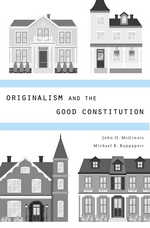
Originalism holds that the U.S. Constitution should be interpreted according to its meaning at the time it was enacted. In their innovative defense of originalism, John McGinnis and Michael Rappaport maintain that the text of the Constitution should be adhered to by the Supreme Court because it was enacted by supermajorities—both its original enactment under Article VII and subsequent Amendments under Article V. A text approved by supermajorities has special value in a democracy because it has unusually wide support and thus tends to maximize the welfare of the greatest number.
The authors recognize and respond to many possible objections. Does originalism perpetuate the dead hand of the past? How can following the original meaning be justified, given that African Americans and women were excluded from the enactment of the Constitution in 1787 and many of its subsequent Amendments? What is originalism’s place in interpretation of the Constitution, when after two hundred years there is so much non-originalist precedent?
A fascinating counterfactual they pose is this: had the Supreme Court not interpreted the Constitution so freely, perhaps the nation would have resorted to the Article V amendment process more often and with greater effect. Their book will be an important contribution to the literature on originalism, which is now the most prominent theory of constitutional interpretation.
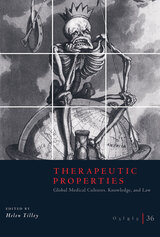
The contributions draw upon source material from the Americas, Africa, Western Europe, the Caribbean, and Asia to trace the influence of penal and civil codes, courts and constitutions, and patents and intellectual properties on not only health practices but also the very foundations of state-sanctioned medicine. The authors explore, too, how institutions of global governance, including those underpinning empires and trade, have historically created feedback loops that enabled laws and regulatory regimes to spread, amplifying their effects and standardizing approaches to diseases, drugs, professions, personhood, and well-being along the way. Highlighting the payoff of interdisciplinary and transnational analyses, this volume adroitly teases apart how different actors fought to write the rules of global health, rendering certain approaches to life and death irrelevant and invisible, others pathological and punishable by law, and others still, normal and natural.

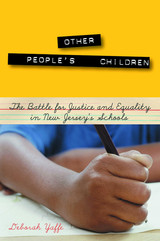
Winner of the 2008 NJ Studies Academic Alliance author's award for an outstanding non-fiction work about New Jersey
In 1981, when Raymond Abbott was a twelve-year-old sixth-grader in Camden, New Jersey, poor city school districts like his spent 25 percent less per student than the state’s wealthy suburbs did. That year, Abbott became the lead plaintiff in a landmark class-action lawsuit demanding that the state provide equal funding for rich and poor schools. Over the next twenty-five years, as the non-profit law firm representing the plaintiffs won ruling after ruling from the New Jersey Supreme Court, Abbott dropped out of school, fought a cocaine addiction, and spent time in prison before turning his life around.
Raymond Abbott’s is just one of the many human stories that have too often been forgotten in the policy battles New Jersey has waged for two generations over equal funding for rich and poor schools. Other People’s Children, the first book to tell the story of this decades-long school funding battle, interweaves the public story—an account of legal and political wrangling over laws and money—with the private stories of the inner-city children who were named plaintiffs in the state’s two school funding lawsuits, Robinson v. Cahill and Abbott v. Burke. Although these cases have shaped New Jersey’s fiscal and political landscape since the 1970s, most recently in legislative arguments over tax reform, the debate has often been too abstract and technical for most citizens to understand. Written in an accessible style and based on dozens of interviews with lawyers, politicians, and the plaintiffs themselves, Other People’s Children crystallizes the arguments and clarifies the issues for general readers.
Beyond its implications for New Jersey, this book is an important contribution to the conversations taking place in all states about the nation’s responsibility for its poor, and the role of public schools in providing equal opportunities and promising upward mobility for hard-working citizens, regardless of race or class.
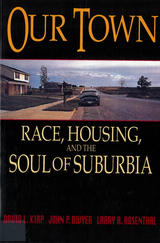
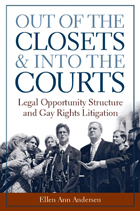
Out of the Closets and into the Courts explores both the promise and the limits of using legal mobilization to effect social change. Crossing disciplinary boundaries, Ellen Andersen draws on the accumulated knowledge of political science, law, and sociology to explain the origins and outcomes of gay rights litigation. The resulting book is essential reading for anyone interested in gay rights, legal change, and social movements.
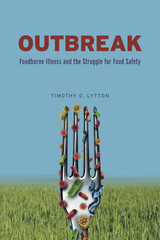
With Outbreak, Timothy D. Lytton provides an up-to-date history and analysis of the US food safety system. He pays particular attention to important but frequently overlooked elements of the system, including private audits and liability insurance.
Lytton chronicles efforts dating back to the 1800s to combat widespread contamination by pathogens such as E. coli and salmonella that have become frighteningly familiar to consumers. Over time, deadly foodborne illness outbreaks caused by infected milk, poison hamburgers, and tainted spinach have spurred steady scientific and technological advances in food safety. Nevertheless, problems persist. Inadequate agency budgets restrict the reach of government regulation. Pressure from consumers to keep prices down constrains industry investments in safety. The limits of scientific knowledge leave experts unable to assess policies’ effectiveness and whether measures designed to reduce contamination have actually improved public health. Outbreak offers practical reforms that will strengthen the food safety system’s capacity to learn from its mistakes and identify cost-effective food safety efforts capable of producing measurable public health benefits.
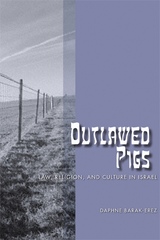
Daphne Barak-Erez specifically traces the course of two laws, one that authorized municipalities to ban the possession and trading in pork within their jurisdiction and another law that forbids pig breeding throughout Israel, except for areas populated mainly by Christians. Her analysis offers a comprehensive, decade-by-decade discussion of the overall relationship between law and culture since the inception of the Israeli nation-state.
By examining ever-fluctuating Israeli popular opinion on Israel's two laws outlawing the trade and possession of pigs, Barak-Erez finds an interesting and accessible way to explore the complex interplay of law, religion, and culture in modern Israel, and more specifically a microcosm for the larger question of which lies more at the foundation of Israeli state law: religion or cultural tradition.

Legal theory must become more factual and empirical and less conceptual and polemical, Richard Posner argues in this wide-ranging new book. The topics covered include the structure and behavior of the legal profession; constitutional theory; gender, sex, and race theories; interdisciplinary approaches to law; the nature of legal reasoning; and legal pragmatism. Posner analyzes, in witty and passionate prose, schools of thought as different as social constructionism and institutional economics, and scholars and judges as different as Bruce Ackerman, Robert Bork, Ronald Dworkin, Catharine MacKinnon, Richard Rorty, and Patricia Williams. He also engages challenging issues in legal theory that range from the motivations and behavior of judges and the role of rhetoric and analogy in law to the rationale for privacy and blackmail law and the regulation of employment contracts. Although written by a sitting judge, the book does not avoid controversy; it contains frank appraisals of radical feminist and race theories, the behavior of the German and British judiciaries in wartime, and the excesses of social constructionist theories of sexual behavior.
Throughout, the book is unified by Posner's distinctive stance, which is pragmatist in philosophy, economic in methodology, and liberal (in the sense of John Stuart Mill's liberalism) in politics. Brilliantly written, eschewing jargon and technicalities, it will make a major contribution to the debate about the role of law in our society.
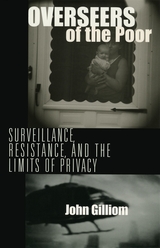
This powerful book lets us in on the conversations of low-income mothers from Appalachian Ohio as they talk about the welfare bureaucracy and its remarkably advanced surveillance system. In their struggle to care for their families, these women are monitored and assessed through a vast network of supercomputers, caseworkers, fraud control agents, and even grocers and neighbors.
In-depth interviews show that these women focus less on the right to privacy than on a critique of surveillance that lays bare the personal and political conflicts with which they live. And, while they have little interest in conventional forms of politics, we see widespread patterns of everyday resistance as they subvert the surveillance regime when they feel it prevents them from being good parents. Ultimately, Overseers of the Poor demonstrates the need to reconceive not just our understanding of the surveillance-privacy debate but also the broader realms of language, participation, and the politics of rights.
We all know that our lives are being watched more than ever before. As we struggle to understand and confront this new order, Gilliom argues, we need to spend less time talking about privacy rights, legislatures, and courts of law and more time talking about power, domination, and the ongoing struggles of everyday people.

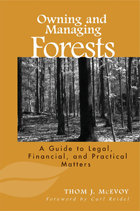
Owning and Managing Forests is both an accessible overview of the privileges, rights, and obligations that accompany forest ownership and a guidebook to help active forest owners and managers use laws to their advantage and avoid the pitfalls of expensive and exhausting litigation. The book is a revised, expanded, and updated edition of Legal Aspects of Owning and Managing Woodlands, published in 1998 by Island Press and named Best Forestry Book of the Year by the National Woodland Owners Association.
This edition provides current information on recent changes in property, environmental, and tax laws, while also discussing new directions in forest management. It offers expanded treatment of topics including private property, searching property records, easements, estate planning, timber sale contracts, working with forestry professionals, and how to pass woodlands intact to future generations. The book also describes the many different facets of trusts, changes in forestland taxation methods, and new licensing and certification options. Included, too, is a section on avoiding disputes and how to use alternative dispute resolution methods to avoid costly, troubling, and time-consuming court battles.
Owning and Managing Forests provides clear and concise descriptions of often confusing concepts and difficult subjects, and addresses issues in a competent yet conversational tone. Anyone involved with owning or managing forestland will find the book an essential guide and reference.
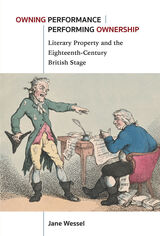
Owning Performance follows the careers of some of the 18th century’s most influential playwrights, actors, and theater managers as they vied for control over the period’s most popular shows. Without protection for dramatic literary property, these figures developed creative extra-legal strategies for controlling the performance of drama—quite literally performing their ownership. Their various strategies resulted in a culture of ephemerality, with many of the period’s most popular works existing only in performance and manuscript copies. Author Jane Wessel explores how playwrights and actors developed strategies for owning their works and how, in turn, theater managers appropriated these strategies, putting constant pressure on artists to innovate. Owning Performance reveals the wide-reaching effects of property law on theatrical culture, tracing a turn away from print that affected the circulation, preservation, and legacy of 18th century drama.
READERS
Browse our collection.
PUBLISHERS
See BiblioVault's publisher services.
STUDENT SERVICES
Files for college accessibility offices.
UChicago Accessibility Resources
home | accessibility | search | about | contact us
BiblioVault ® 2001 - 2024
The University of Chicago Press









